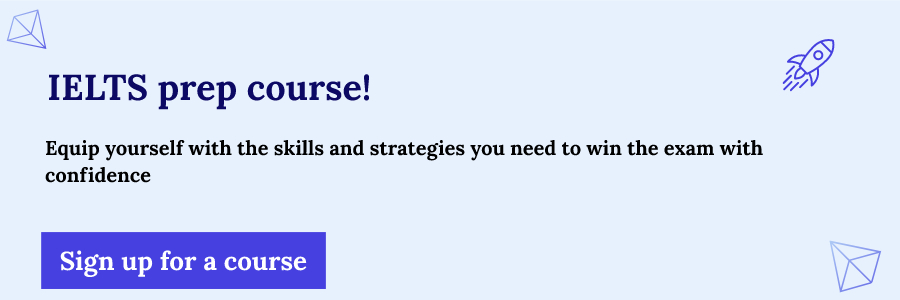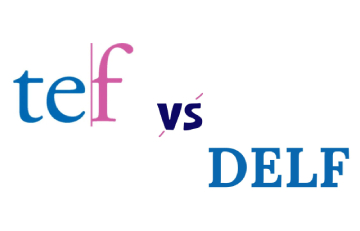
What is the IELTS Exam?
The International English Language Testing System (IELTS) is a standardized test designed to assess the English language proficiency of non-native speakers. The test covers four key language areas: Listening, Reading, Writing, and Speaking.
The exam is jointly administered by the British Council, IDP: IELTS Australia, and Cambridge Assessment English.
For What is the IELTS Exam Used?
IELTS is widely recognized by universities, employers and immigration authorities in English-speaking countries such as the UK, USA, Canada, Australia and New Zealand. Whether it is for higher education, immigration, employment or registration for careers in health, law and other fields, your IELTS score can be a determining factor in achieving your goals.
What are the Two Types of IELTS?
IELTS Academic: For individuals applying to study at an undergraduate or postgraduate level or seeking professional registration.
IELTS General Training: For those intending to migrate, work, pursue secondary education or vocational training in an English-speaking country.
The key difference between the Academic and General Training IELTS is the content of the reading and writing sections. Academic IELTS focuses more on scholarly topics, while General Training IELTS covers everyday life and work-related content.
! There is also a third type of IELTS test, UKVI (Life Skills), which is designed specifically for certain categories of UK visas and assesses only basic speaking and listening skills. However, the IELTS Academic and General Training tests are much more popular, as they assess all language skills and are required for broader purposes.
What Does IELTS Include?
The IELTS exam includes four sections:
1. The Listening section includes four recordings of native English speakers covering conversations, monologues, everyday conversations and academic discussions. You will answer questions based on these recordings.
Question Types: Multiple-choice, matching, and map/plan marking tasks.
Duration: 30 minutes, 40 questions
2. Reading section:
• In the academic version: Contains three long, complex texts taken from books, journals, and magazines, aimed at those entering academic or professional environments. Topics are often more specialized and formal.
• In the general version: Consists of a variety of everyday materials, such as advertisements, instruction manuals, and general interest articles.
Question Types: Multiple-choice questions, True/False/Not Given, short answer, and sentence completion or summary.
Duration: 60 minutes, 40 questions
3. The Writing section consists of two tasks:
• Task 1 (150 words): In the academic version of IELTS you need to describe visual information such as diagrams, graphs or processes. In the general preparation, you write a letter.
• Task 2 (250 words): An essay in which you express and support your opinion on a given topic (for both versions).
Question Types: Data description (academic), letter writing (general), essay writing.
Duration: 60 minutes, 2 assignments.
4. The Speaking section is a one-on-one interview with the examiner. It lasts 11-14 minutes and consists of three parts:
• Part 1 Introduction and Interview: Basic questions about yourself, your family, work and interests.
• Part 2 Individual long presentation.
• Part 3: A more in-depth discussion of the topic.
Question Types: Personal, descriptive and opinion-based questions.
What are the topics in IELTS?
IELTS topics can range from everyday situations to more complex discussions about learning, health, the environment and technology.
For example, topics in the Reading and Writing sections can cover both research, history and technology (academic preparation) and everyday issues such as work-life balance, housing or education (general preparation).
For more information on question types and test format, see our Complete IELTS Guide.
What is the Price of IELTS Exam?
The cost of the IELTS exam varies by location, generally ranging from $200 to $340 depending on the country and test center.
What Should I Take to IELTS Exam?
• Valid ID: Typically a passport or national ID card as required by the testing center.
• Confirmation Letter: A printed copy of the test confirmation and any instructions provided by the test center.
• Stationery: Pencils and erasers for paper tests. These are usually provided, but check with your testing center.
• Clock: To monitor the time, although most centers provide a clock.
• Face mask: Depending on local health regulations, especially for face-to-face tests.
• Electronic devices are not allowed in the exam room.
After IELTS Exam, What Next?
• Paper-Based IELTS: Results are available 13 days after the test date.
• Computer-Delivered IELTS: Results are typically available within 1 – 5 days.
• IELTS Online: Results are available within 6 – 8 days.
• Accessing Results: You can view your results online through your IELTS account or receive a paper report via mail, depending on the test type.
After receiving your results, you can apply to universities, jobs, or immigration programs based on your score.
IELTS: What is a Good Score?
A good score on the IELTS exam depends on your objective. For academic purposes, a score between 6.5 and 7.5 is often required, while for immigration, the required score may vary by country or visa type.
The maximum score in the IELTS exam is 9, which reflects expert proficiency in English. A score of 9 signifies that the test-taker can use and understand English with complete fluency and accuracy.
The minimum IELTS score required for university admission or visa applications usually ranges between 5.5 and 7, depending on the institution or immigration authority.
A score of 6.5 indicates that the test-taker is a competent user of English, able to handle complex language well, though with some errors or misunderstandings.
An IELTS score of 7 means that the candidate has a good command of the English language, with occasional lapses, but no significant breakdowns in communication.
What is B1, B2, C1, and C2 in IELTS?
These are CEFR levels that correspond to IELTS scores:
• B1: Equivalent to IELTS 4.0-5.0.
• B2: Equivalent to IELTS 5.5-6.5.
• C1: Equivalent to IELTS 7.0-8.0.
• C2: Equivalent to IELTS 8.5-9.0.
What IELTS is Needed for Canadian Immigration?
For Canadian immigration, the IELTS General Training test is required. The minimum score for immigration via Express Entry typically ranges from 6 in each section, but higher scores improve your chances.
What IELTS Score is Required for Canadian Universities?
Most Canadian universities require an IELTS Academic score of 6.5 overall, with no section below 6.0 for admission to their programs.
What IELTS Test is Required for Australian Immigration?
The General Training IELTS is required for immigration to Australia. The required score varies depending on the visa type, but generally, a minimum score of 6 is necessary.
What to Prepare for the IELTS Exam?
General Preparation:
• Improve English language skills and familiarize yourself with the test format.
• Use past exam papers to understand question types and structure.
Listening:
• Practice with different English accents (British, Australian, American).
• Engage with varied formats like lectures, conversations, and interviews.
Reading:
• Enhance reading speed and comprehension with diverse materials.
• Practice skimming for general ideas and scanning for specific details.
Writing:
• Write essays and reports/letters (depending on test type).
• Structure writing with clear introductions, body paragraphs, and conclusions.
• Expand vocabulary and improve grammar accuracy.
Speaking:
• Converse regularly with fluent English speakers.
• Practice answering questions confidently and coherently on various topics.
• Record yourself to assess pronunciation, fluency, and coherence.
Study Materials and Resources:
• Official IELTS Practice Materials: Sample questions and practice tests.
• IELTS Preparation Books: The Official Cambridge Guide to IELTS, Barron’s IELTS Superpack.
• Online Platforms: Resources from IELTS.org, British Council, and IDP.
• Mobile Apps: IELTS Prep App, IELTS Practice & IELTS Test Pro.
• Tutors and Classes: For structured tuition and personalized feedback, enroll in eTalk’s best online IELTS course. Experienced tutors will provide you with guidance and resources to help you succeed in all areas of the IELTS exam.
What is IELTS Online?
IELTS Online allows candidates to take the test remotely from their homes or offices. This option provides flexibility in terms of location and scheduling while maintaining the same structure and scoring as the in-person test.
What is CD IELTS?
Computer-Delivered IELTS offers test-takers the option to complete the Listening, Reading, and Writing sections on a computer. The Speaking test remains a face-to-face interview with an examiner. CD IELTS often provides quicker results compared to the paper-based test.
What is British Council IELTS?
The British Council is one of the official organizations that administer the IELTS exam worldwide, in collaboration with IDP and Cambridge English.
What is IDP IELTS?
IDP: IELTS Australia is one of the co-owners of the IELTS test, along with the British Council and Cambridge Assessment English. IDP conducts and manages the IELTS exam in multiple countries. However, the test content and scoring remain the same whether administered by IDP or the British Council.
What is UKVI IELTS?
UKVI (Life Skills) is a specialized IELTS test for UK visa and immigration applications. It focuses solely on speaking and listening skills, with a limited scope tailored to certain UK visa categories that require only basic communication abilities.
TOEFL or IELTS: What is Easier?
The TOEFL and IELTS tests similar skills, but their formats are different. The TOEFL is a computer-based test that focuses more on academic English, while the IELTS has a more conversational format, especially in the Speaking section.
The TOEFL is often more suited to those who are proficient in American English, while the IELTS tends to be better suited to those who are more familiar with British English. The choice depends on your personal qualities and experience.
What is Easier: IELTS or PTE?
The PTE (Pearson Test of English) is entirely computer-based and has an automated scoring system, while IELTS includes both paper and computer-based versions and also has a speaking component.
The PTE is considered easier by some because it allows for flexibility in exam dates and focuses on real English. However, examinees with strong communication skills may prefer IELTS.












